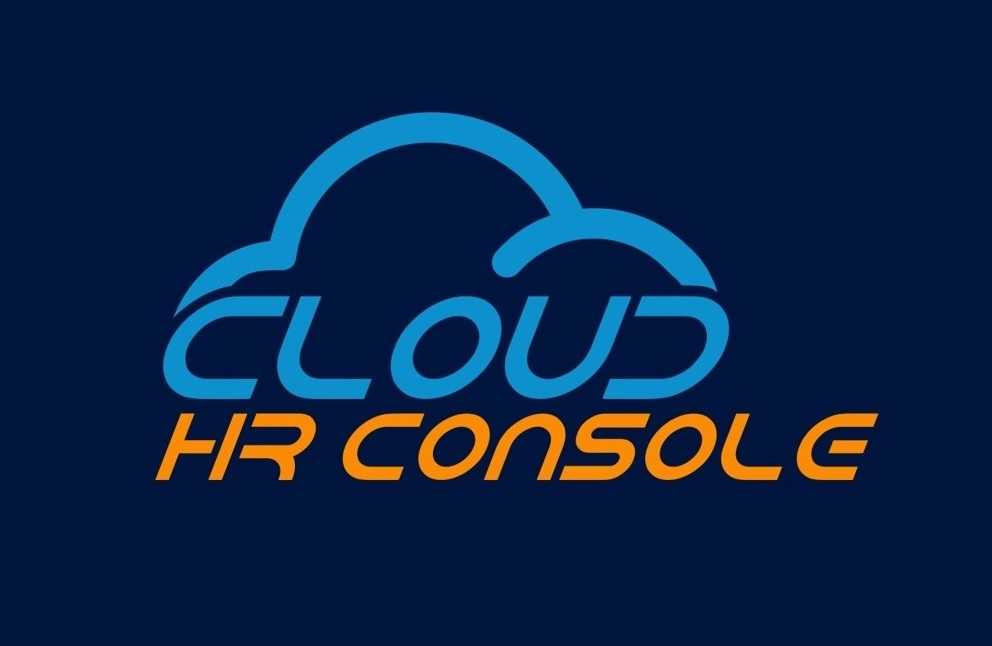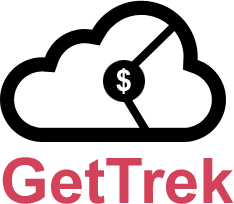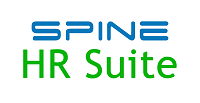Description

Cloud HR Console

GCPAY
Comprehensive Overview: Cloud HR Console vs GCPAY
As of my last knowledge update in October 2023, Cloud HR Console and GCPAY are distinct products tailored for different purposes within the business and construction industries. Here’s a comprehensive overview:
a) Primary Functions and Target Markets
Cloud HR Console:
- Primary Functions: Cloud HR Console is typically designed to handle a range of human resources (HR) management activities. These include employee data management, payroll processing, benefits administration, recruitment and onboarding, performance management, and compliance tracking. Some versions may offer advanced features like analytics and reporting, employee self-service portals, and mobile accessibility.
- Target Markets: The primary target market includes small to medium enterprises (SMEs) and larger corporations that need a comprehensive tool to streamline HR operations. It can serve various industries, but is particularly beneficial to organizations that process large amounts of employee data or have specific HR compliance needs.
GCPAY:
- Primary Functions: GCPAY is intended to streamline the payment and invoicing processes within the construction industry. It facilitates construction billing management, lien waivers, compliance document management, and subcontractor communication. GCPAY automates the submission, review, and approval of payment applications, which is crucial for maintaining cash flow and transparency in construction projects.
- Target Markets: The tool is targeted at general contractors, subcontractors, and construction management firms. It is particularly useful for companies handling multiple projects and having complex payment structures.
b) Market Share and User Base
Cloud HR Console:
- Market Share: The market share of Cloud HR Console products largely depends on the provider and the specific HR tools they offer, as the term ‘Cloud HR Console’ could refer to various tools by different companies. In general, cloud-based HR tools have seen growing adoption due to scalability and cost-effectiveness.
- User Base: This varies significantly among different HR consoles and providers. However, cloud HR solutions generally have a large and growing user base across diverse industries. Companies moving from legacy systems to cloud solutions contribute to this growth.
GCPAY:
- Market Share: GCPAY has a niche market in the construction industry. Its adoption is generally driven by companies looking to modernize their payment processing and enhance compliance management in construction projects.
- User Base: GCPAY's user base consists primarily of construction firms, and its reach is typically within North America, although international adoption may occur as industries globally adopt more streamlined processes.
c) Key Differentiating Factors
Cloud HR Console:
- Features Versatility: Offers a variety of HR functions that can be customized based on organizational needs. It often integrates with other enterprise solutions like ERP or CRM systems.
- Scalability: These consoles tend to be scalable, catering to the HR needs of both small businesses and large enterprises.
- Compliance and Security: Emphasis on compliance with labor laws and data protection regulations, often including features to support international labor guidelines.
GCPAY:
- Industry-Specific Design: GCPAY is designed specifically for the construction industry, providing functionalities that address industry-specific challenges like lien waivers, compliance documents, and intricate subcontractor relationships.
- Payment Streamlining: Focuses exclusively on improving the payment process, making it more efficient and transparent, which is vital in construction operations.
- Integration Capabilities: Typically integrates with construction management software, facilitating a seamless workflow across billing, project management, and compliance.
In summary, while both Cloud HR Console and GCPAY bring automation and efficiency to their respective fields, they serve different purposes and industries. The choice between them depends entirely on the specific operational needs, whether those are related to managing human resources or handling construction payments.
Contact Info

Year founded :
2017
Not Available
Not Available
India
http://www.linkedin.com/company/cloud-hr-console

Year founded :
Not Available
Not Available
Not Available
Not Available
Not Available
Feature Similarity Breakdown: Cloud HR Console, GCPAY
To provide a feature similarity breakdown for Cloud HR Console and GCPAY, let's take a look at each part of your request:
a) Core Features in Common
-
User Management: Both platforms typically offer robust user management features, allowing admins to add, remove, and manage user access, roles, and permissions.
-
Security and Compliance: Both systems emphasize security and provide tools to ensure data protection and compliance with industry standards.
-
Reporting and Analytics: Each platform offers reporting and analytics capabilities to provide insights and metrics that help in decision-making and performance monitoring.
-
Integration Capabilities: Both products are designed to integrate with other software and tools, enabling seamless workflow and data exchange.
b) User Interface Comparison
-
Cloud HR Console: This typically features an interface tailored towards HR professionals, focusing on ease of use for tasks such as employee records management, payroll, and benefits administration. The interface may be more text-focused with dashboard elements for quick insights and navigation.
-
GCPAY: This platform is generally focused on construction payment processes, so the UI might present elements tailored to financial transactions, progress tracking, and compliance documentation. Its interface is likely designed to cater to financial managers and project managers, incorporating tabular data views and approval workflows.
c) Unique Features
-
Cloud HR Console:
- Employee Self-Service Portals: Often offers portals that allow employees to manage their personal information, view pay stubs, and submit time-off requests.
- Talent Management: May include features for recruitment, performance management, and training.
-
GCPAY:
- Construction Payment Management: Unique tools for managing complex payment structures in the construction industry, like lien waivers, compliance tracking, and project-specific billing.
- Subcontractor Management: Specifically designed features that aid in managing subcontractor contracts, payments, and compliance documentation unique to construction workflows.
These breakdowns provide a comparative look at the features of Cloud HR Console and GCPAY. Each product targets different industries, which is reflected in their specific functionalities and user interface designs.
Features

Not Available

Not Available
Best Fit Use Cases: Cloud HR Console, GCPAY
Cloud HR Console and GCPAY serve distinct functions and cater to different industries or business needs. Here's a detailed breakdown of their best-fit use cases:
Cloud HR Console
a) For what types of businesses or projects is Cloud HR Console the best choice?
Cloud HR Console is ideally suited for:
-
Small to Medium Enterprises (SMEs): These businesses often require an affordable, scalable, and efficient solution to manage their human resources effectively without investing heavily in custom HR systems.
-
Companies with Remote Workforces: Businesses with distributed teams benefit from Cloud HR Console due to its cloud-based nature, which allows employees and HR managers to access necessary tools and information from anywhere.
-
Growing Businesses: Organizations experiencing rapid growth need a system that can easily scale and accommodate new employees and organizational changes.
-
Industries with High Turnover Rates: Sectors such as retail, hospitality, and others that face frequent hiring and onboarding cycles will find the Cloud HR Console beneficial for streamlining these processes.
-
Projects with Dynamic Team Structures: Businesses engaged in project-based work where teams are frequently reconfigured can leverage the flexibility and accessibility of the Cloud HR Console.
GCPAY
b) In what scenarios would GCPAY be the preferred option?
GCPAY is particularly effective for:
-
Construction and Contracting Businesses: GCPAY is designed specifically to address the needs of the construction industry, where managing subcontractor pay applications, compliance documents, and lien waivers are critical.
-
Large-Scale Infrastructure Projects: Projects with complex subcontractor networks and multiple stakeholders will benefit from GCPAY’s organized, transparent payment processes.
-
Organizations Requiring Detailed Payment Tracking: Any business that needs a robust system to manage and track payments meticulously will find GCPAY advantageous.
-
Industries with Stringent Compliance Requirements: Sectors where compliance and document tracking are crucial, like government projects or regulated industries, will appreciate the tool’s features geared towards meeting these demands.
d) How do these products cater to different industry verticals or company sizes?
- Cloud HR Console:
- Industry Vertical Catered To: It serves various industries, with a strong emphasis on service sectors, tech startups, and any business needing efficient HR management.
- Company Size: Primarily beneficial for small to medium-sized enterprises but scalable for larger companies as well, especially those undergoing digital transformation.
- GCPAY:
- Industry Vertical Catered To: Exclusively tailored for the construction and contracting industry, it addresses the unique challenges these businesses face in payment processing and document management.
- Company Size: Adaptable to both small contractors and large construction firms, particularly those handling complex projects with extensive subcontractor involvement.
Each of these tools has been designed with specific industry needs in mind, making them highly effective for their intended purposes. Companies should assess their core operations and specific challenges to choose the solution that best aligns with their strategic objectives.
Pricing

Pricing Not Available

Pricing Not Available
Metrics History
Metrics History
Comparing undefined across companies
Conclusion & Final Verdict: Cloud HR Console vs GCPAY
Conclusion and Final Verdict: Cloud HR Console vs. GCPAY
When evaluating Cloud HR Console and GCPAY, it's crucial to consider the specific needs and priorities of your business. Both products have their unique strengths and cater to slightly different markets, making the choice highly dependent on your particular requirements. Below is a detailed analysis considering all the relevant factors and offering specific recommendations.
a) Best Overall Value
Cloud HR Console generally provides the best overall value for organizations focused on comprehensive HR management solutions. If your primary needs are centered around human resources management, employee data, recruitment, and performance management, Cloud HR Console is likely the superior choice. It is designed to streamline HR processes, provide analytics, and improve workforce engagement, making it a more holistic tool for HR departments.
On the other hand, GCPAY is specialized for companies in the construction and building industries. Its strength lies in streamlining payment processing, managing compliance, and ensuring accurate and timely contractor payments. For businesses in these sectors looking to optimize payment management and reduce administrative overhead, GCPAY offers significant value tailored to industry-specific needs.
b) Pros and Cons
Cloud HR Console:
-
Pros:
- Comprehensive HR functionalities covering a wide range of HR needs.
- Integrated tools for recruitment, performance management, and employee engagement.
- Enhanced reporting and analytics for data-driven decision-making.
- Potentially scalable for businesses of various sizes.
-
Cons:
- May require extensive setup and integration with existing systems.
- Could come with a steeper learning curve for users unfamiliar with HR software.
- A broader focus may lead to unnecessary features for businesses solely seeking payroll solutions.
GCPAY:
-
Pros:
- Specialized in the construction industry for seamless payment processing.
- Simplifies compliance management with industry-specific regulations.
- Reduces administrative workload through automation and streamlined processes.
- Designed to handle complex payment structures typical in construction projects.
-
Cons:
- Limited HR functionalities compared to a full HR suite like Cloud HR Console.
- May not be as useful or cost-effective outside of the construction industry.
- Potentially lacks the scalability for companies that plan to expand beyond construction-specific services.
c) Specific Recommendations
-
Assess Your Primary Needs:
- If your organization prioritizes human resource management and workforce optimization, invest in Cloud HR Console. It will offer comprehensive tools to manage HR functions effectively.
- For construction or project-based businesses focused on managing payments, compliance, and contractor relations, GCPAY is the better fit due to its tailored features.
-
Consider Industry-Specific Requirements:
- Evaluate industry-specific needs and workflows. GCPAY is often indispensable for construction firms, while the Cloud HR Console caters to a broader market with general HR requirements.
-
Evaluate Budget and ROI:
- Examine your budget constraints and weigh them against the expected return on investment. A tool that aligns with your core activities and enhances efficiency should justify the expenditure.
-
Test Usability and Integration:
- Conduct trials or demos to test user experience and see how well each product integrates with your existing tools and processes. User feedback is crucial in determining long-term satisfaction and utility.
-
Seek Advice and Case Studies:
- Consider reaching out to peers in similar industries or reviewing case studies to understand the impact of each tool in real-world scenarios.
Ultimately, the choice between Cloud HR Console and GCPAY should align with your operational priorities, industry-specific challenges, and long-term business goals.
Add to compare
Add similar companies



